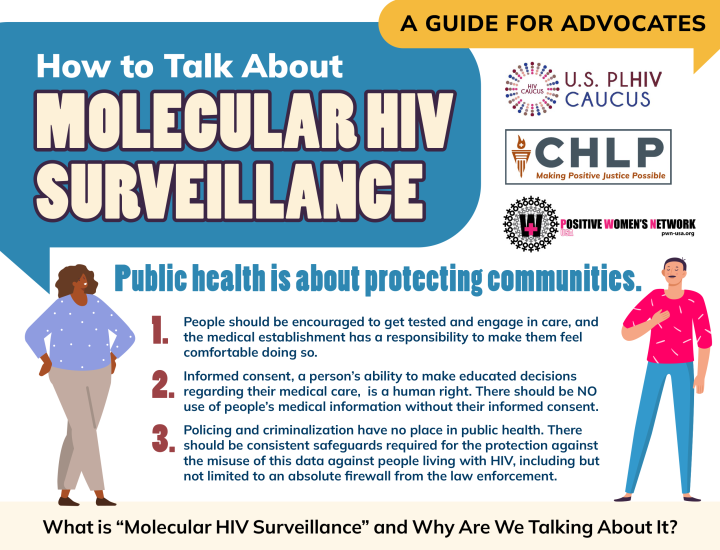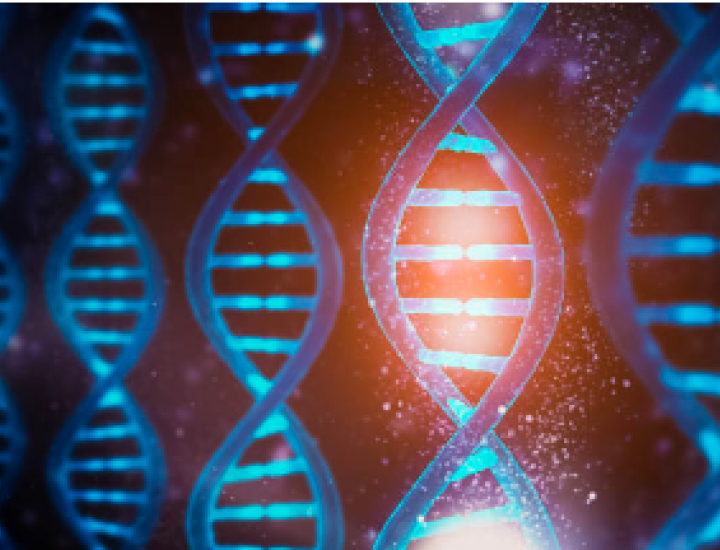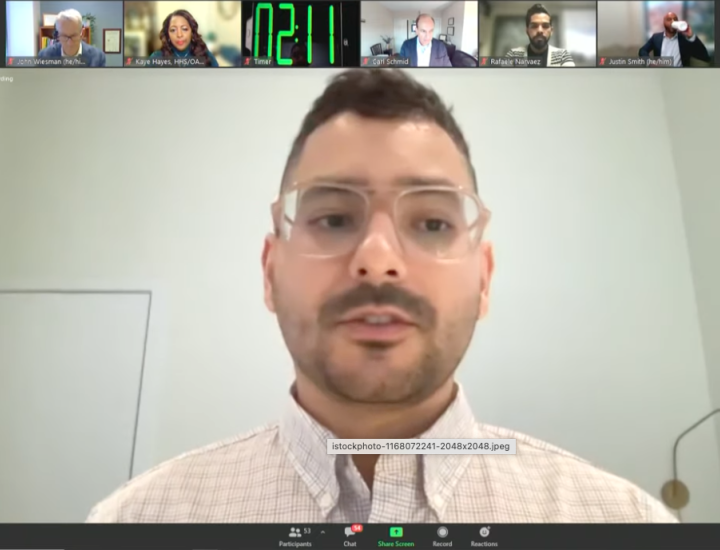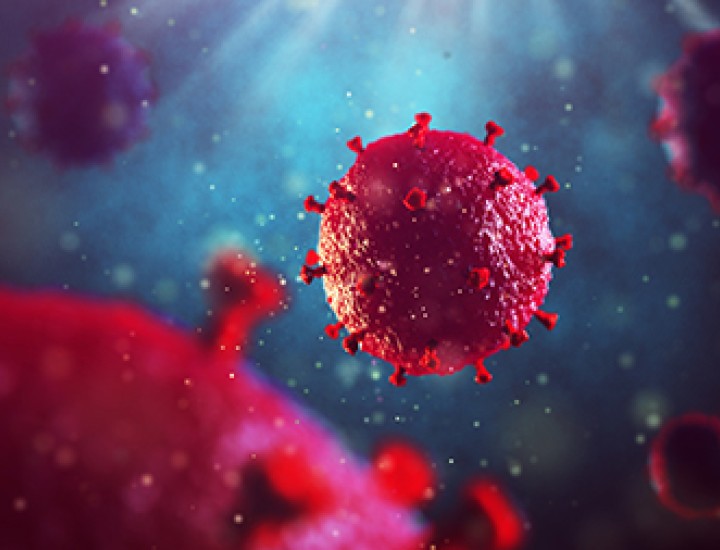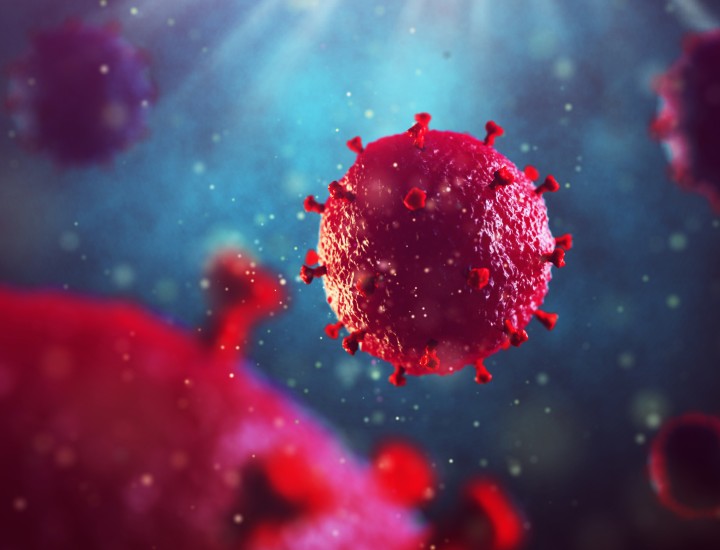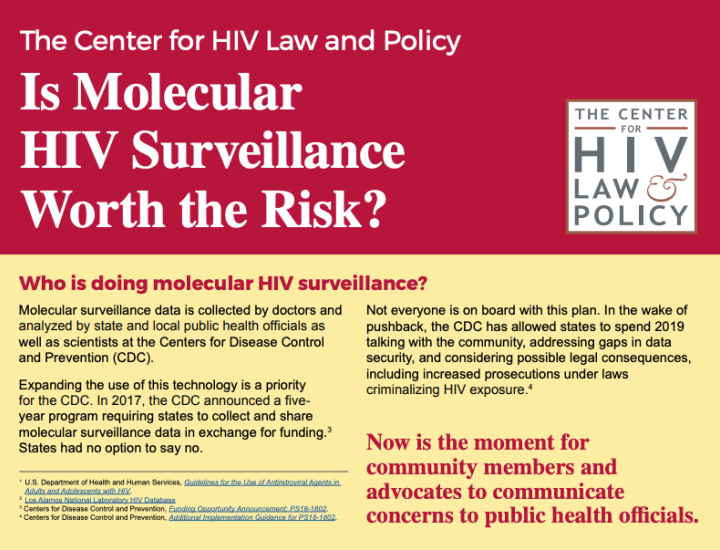Published June, 2020
Position Statement on the Use of Molecular Surveillance to Track HIV Transmission Networks, AIDS United Public Policy Council (2020)
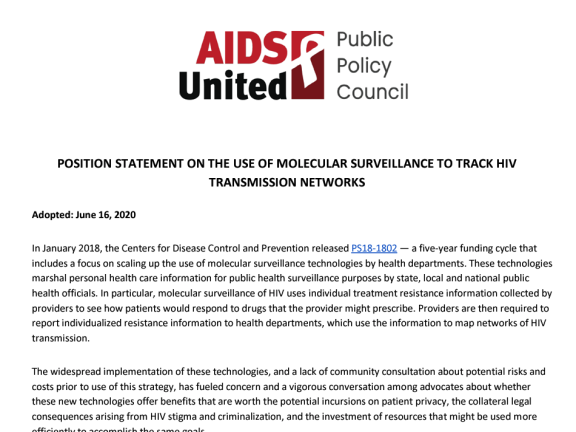
In 2017, the Centers for Disease Control and Prevention (CDC) announced a five-year program requiring states to collect and share personal health care information collected by doctors, known as molecular surveillance data, for analysis by state and local public health officials as well as scientists at the CDC. However, p ublic health officials have not explained why collecting molecular surveillance data is necessary or how it will be used, causing concern about the widespread implementation of these technologies.
This position statement by AIDS United Public Policy Council (PPC) outlines principles that support people living with HIV, advocates and policymakers in assessing how to utilize the benefits of molecular surveillance technology while protecting privacy and preventing misuse of information by the criminal legal system, and in particular the consequences arising from HIV stigma and criminalization. The AIDS United PPC consists of more than 50 of the leading HIV-focused organizations from across the United States to advocate for people living with or affected by HIV and the organizations that serve them. This statement was adopted on June 16, 2020.
Copyright Information: CHLP encourages the broad use and sharing of resources. Please credit CHLP when using these materials or their content. and do not alter, adapt or present as your work without prior permission from CHLP.
Legal Disclaimer: CHLP makes an effort to ensure legal information is correct and current, but the law is regularly changing, and the accuracy of the information provided cannot be guaranteed. The legal information in a given resource may not be applicable to all situations and is not—and should not be relied upon—as a substitute for legal advice.
